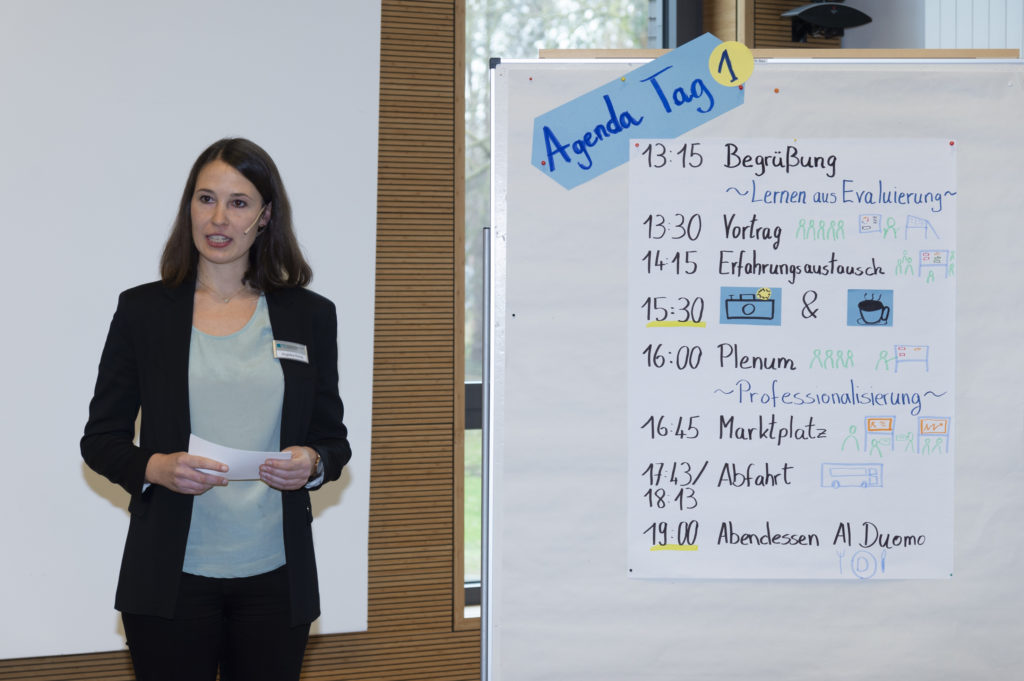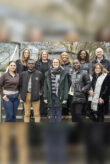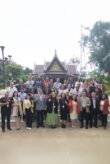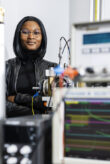On 6 and 7 February, PTB and the Federal Ministry of Economic Cooperation and Development (BMZ) jointly welcomed representatives of the evaluation units of German development cooperation organizations in Braunschweig at the traditional annual meeting. Over 60 guests from governmental and non-governmental institutions participated in order to discuss the newest developments in evaluation work. Upon first glance, it would seem to be a rather unusual type of meeting for PTB. However, a closer look quickly reveals how well the topic of evaluation fits with PTB being the host of this year’s meeting. In addition to general discussions on evaluation and participants networking, the topics “Learning from evaluations” and “Evaluation culture” were the focus during the two days.

For over 60 years, PTB has been involved in development cooperation on behalf of the BMZ. Apart from planning and implementation, a complete project cycle also includes project evaluations. These are not only a way to check the results and impacts achieved, but also of generating important learning experiences for future projects. The topic of “learning” thus took up a large part of the discussions this year.

After being greeted by the President of PTB, Prof. Dr. Ullrich, who emphasized the importance of this type of networking and discussions, the Head of the Evaluation Section at BMZ, Ms. Pragua, took the floor. She underlined the significance of the topic “Learning from evaluations” in order to be able to use the results of evaluations as effectively as possible. The BMZ and DEval (the German Institute for Development Evaluation) introduced the topic with a joint presentation on “Learning from evaluations – political significance and current practice”.

Afterwards, this topic was actively explored in a pleasant discussion atmosphere in small groups. The following questions were discussed: How can overarching learning from (project) evaluations be guaranteed and promoted in an organization? How can our project partners also learn from the evaluations? In addition, there were lively discussions on evaluation methods and tools as well as potential learning experience for other organizations and stimulating discussions on striking a balance between accountability and learning. After ample time for discussion, the day winded down with an evening meal in a relaxed atmosphere in Braunschweig’s city centre.

On Friday morning, the guests from non-governmental organizations were at the focus with their input on civil society evaluation culture. After that, the question “What is good evaluation culture?” was examined closely. A consensus on this was reached quickly: Evaluations should be seen as a means to improve project implementation, as a component of critical organizational culture and as true error culture that are supported by the heads.

An important topic was provided by the Head of the OECD’s Evaluation Unit, Ms. Kennedy-Chouane, with a closer look at the revision of the OECD DAC evaluation criteria. Alongside the five currently mandatory evaluation criteria in German development cooperation (relevance, efficiency, effectiveness, effect and sustainability), coherence will be added as a criterion in the future. The participants were especially excited about Ms. Kennedy-Chouane’s visit and hearing about the discussion processes at the international level firsthand. Finally, Dr. Ulbig (the Head of Division 9 of PTB) took advantage of the opportunity to present PTB’s work and to inform the group in detail about the laboratory visits during the afternoon. Many interested participants took part in the visits before the group dispersed to all parts of Germany again. The consensus among all the participants after two days was that the event was a success and that there was a lot of time for stimulating discussions and sharing valuable information.









